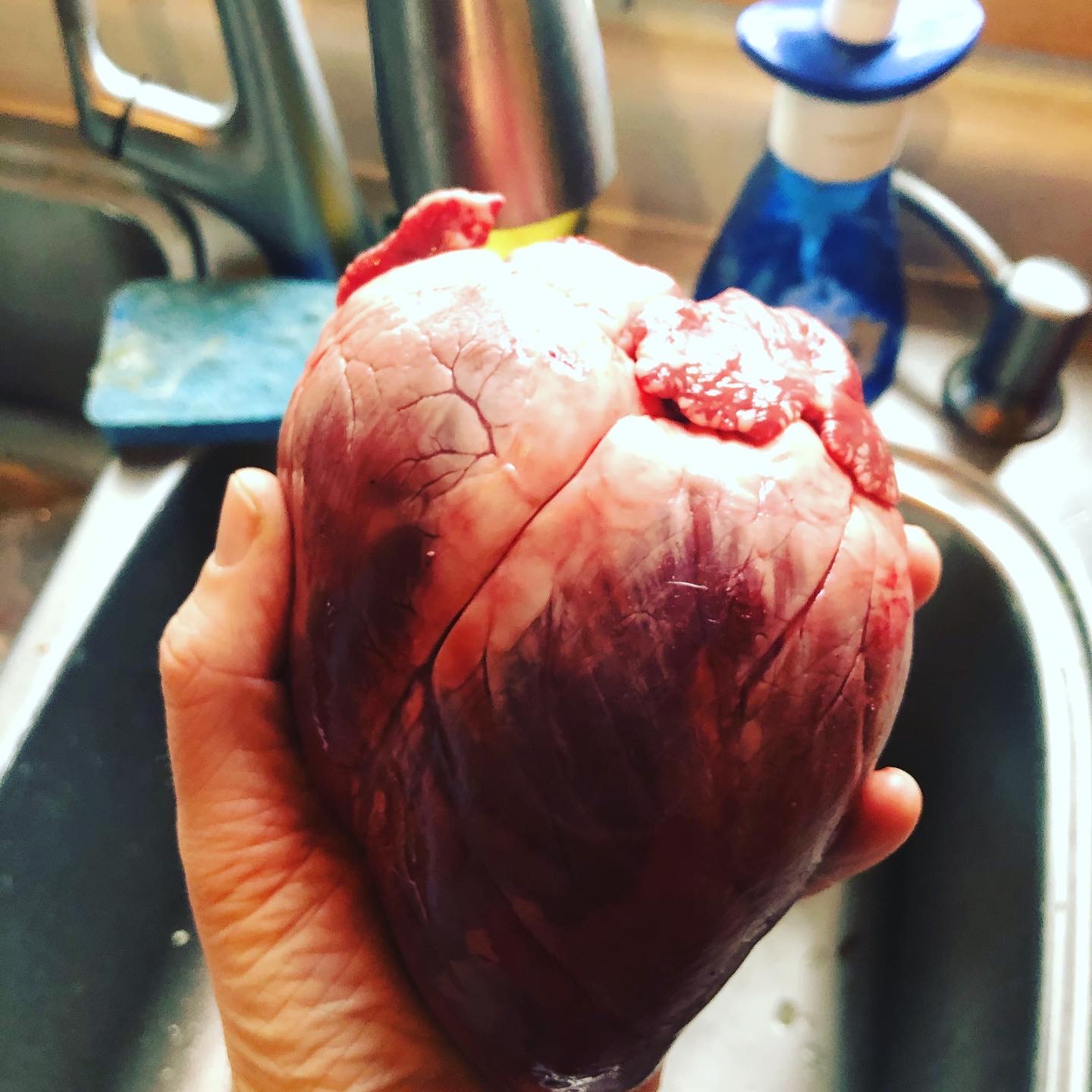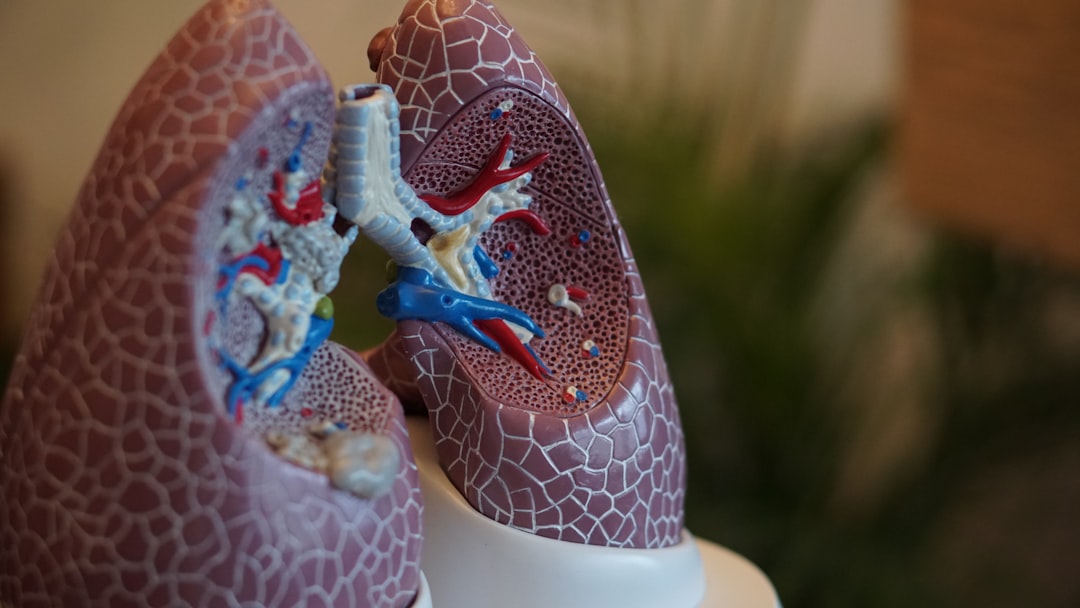The Wisdom of the Heart

Deer heart - photo by me. Hunting season 2019.
We speak from the heart, live from the heart, and follow our hearts. Our hearts guide us. Our hearts are either "in it" or not. When we write, create, and give back to the world, we do so from the heart.
These are all concepts intertwined throughout our lives. We hear these phrases often and perhaps have been hearing them for a long time, although they were simply thought to be metaphors.
Of course, what we “do” in the world is led by our brains, right? Our heart is only responding to signals that our brain sends, just like anything else in ourselves?
Probably not.
The heart actually, in contrast, sends more signals to the brain than the other way around, and these signals have a huge effect on the brain’s function, including on things such as memory, attention, perception, and problem-solving skills.
When we are stressed out, our heartbeats can become erratic and disordered, which affects the heart’s communication with the brain. This disruption in communication affects our higher cognitive functioning, limiting our abilities to think, learn, reason, and process, and actually can ultimately reinforce the stressful experience on the body.
Heart Rhythm & Emotions
Many things can affect our heart rates, but one of the most profound is our thoughts, feelings, and emotions.
The heart rate isn’t perfectly symmetrical like a metronome. The amount of time between each one of your heartbeats varies slightly, and this is called Heart Rate Variability (HRV). Studies have found that heart rate variability and asymmetry (HRA) are susceptible to emotions and other psychological influences.
Heart rate variability is seen as an indicator of good or poor health. A degree of variability may reflect our resiliency when it comes to dealing with stress, just as a tennis player shifts their stance to prepare for an incoming serve, a healthy heart is just as responsive.
Research at HeartMath Institute has found just how emotions are tied to HRV and HRA.
Emotions like stress, anger, and frustration cause a more erratic, incoherent heart rhythm, which can subsequently affect how the rest of our bodies operate. This incoherent heart rhythm can deplete our energy and cause us to operate more inefficiently overall.
Subsequently, positive emotions like joy, love, compassion, and happiness produce a more harmonious, smooth wave of heart rhythm.
Pain.
Historically, scientists have always insinuated that pain is created by the brain. Pain is not only a sensory experience though, we can experience physical pain because of emotional turmoil, stress, trauma, or social components.
Have you ever had your heart broken? This is also more than a metaphor.
There’s a physical sensation around the heart space that happens when we have our hearts proverbially broken. It’s a sinking, heavy feeling in the heart, a pain in the chest that almost impedes our abilities to breathe. The sensation can take our breath away. Even experiencing grief is both heart-breaking and breath-taking.
Other HeartMath Research has shown that our hearts actually know when we are going to experience pain before we do, according to author, visionary leader, and meditation teacher Spring Washam in her Sounds True lecture "Trusting Our Hearts: Intuition, Embodiment, Personal Power."
In 1991, Dr. Andrew Amour discovered that the heart has a little brain of its own: 40,000 neurons similar to neurons in the brain, acting as its own mini-nervous system. He also researched the different ways the heart communicates with the brain, including neurologically, biophysically, biochemically, and energetically.
Furthermore, research has shown that pain perception is influenced by neural pathways that target the heart, meaning the heart likely has more influence over pain perception than the brain, particularly emotionally and cognitivelly, making it a key modulator of pain.
The Vagus Nerve.
The Vagus nerve affects the autonomic nervous system, which is responsible for things our bodies can do without conscious knowledge, like digestion, heart rate, and breath.
The Vagus nerve may also play a role in the gut/brain highway, which scientists are beginning to believe can play a role in mental health issues such as depression.
The gut, like the heart, is also known to have a brain of its own.
What’s this have to do with the heart? The Vagus nerve affects the heart in a couple of different ways: It provides visceral sensory information about the heart, as well as stimulating muscles of the heart and lowering the resting heart rate. When the Vagus nerve is damaged, it can cause an abnormally slow heart rate, low blood pressure, or anxiety and depression in people with breathing issues or heart disease.
Vagus nerve stimulation.
Vagus nerve stimulation has been used to treat seizures in those with epilepsy, and more recently, has been used to treat depression in people who haven’t had much success with other forms of treatment. It can also help with things like stress levels and overall health.
You can stimulate your own vagus nerve through things like exercise, meditation, massage (especially reflexology), listening to music, and cold-water immersion.
Music in particular has a huge effect on the Vagus nerve.
When you listen to your favorite artist, does your heart light up? What about when you go to their concert and see them walk out on the stage as a real-life person in front of you, does your heart skip a beat? Maybe I’m a little obsessive with my favorite bands, but that’s certainly how I feel.
The Vagus nerve is in close proximity to the ear, meaning when you listen to music, the vibrations resonate in the eardrums before traveling through the Vagus nerve. The Vagus nerve can stimulate the parasympathetic nervous system, which is responsible for “rest and digest,” so when you stimulate it, it sends the body a signal that it is time to chill out.

Photo by freestocks on Unsplash
The Heart Chakra
The heart chakra, or Anahata, is located right around the heart in what’s traditionally considered the heart plexus. It’s also associated with the thymus gland of the endocrine system.
The heart chakra is the energetic center for love, compassion, joy, empathy, and forgiveness. It is the center for love both for yourself and love for others.
When it’s blocked, it can affect your ability to form and maintain healthy relationships. Physically, it affects your heart, lungs, chest, arms, and hands.
A blocked heart chakra can result in poor blood pressure and circulation, as well as other issues of the heart and lungs.
A healthy and balanced chakra system is vital for our physical, mental, and emotional health. The energy you feel around your heart in both times of joy and stress is a real, somatic sensation.
As discussed earlier, you can literally feel thoughts and emotions in your heart. Those sensations are more than just a simple feeling: Feelings affect us physically and physiologically as well as mentally and emotionally.
To balance out your heart chakra, try
- Actively practicing things like gratitude and forgiveness.
- Use rose quartz or other heart-opening crystals, if crystals are your jam.
- Practice loving-kindness meditations.
Traditional Chinese Medicine and the Heart
The heart is considered a monarch of sorts in Traditional Chinese Medicine, reigning over the five main organs and being the center for all spiritual and mental activities.
The heart is where the spirit, or shen, resides, and the absence of shen is often seen as important in the prognosis of illness and disease.
If you have ever had acupuncture, Shiatsu, or any other kind of TCM-based treatment, you probably found yourself sticking out your tongue for some sort of health analysis.
In TCM, it’s believed that the health of the entire body can be examined through the orifices. (Commonly, just the tongue is observed). The tongue itself is considered the orifice to the heart and the condition of the tongue can pick up on more chronic and long-term issues with the heart, unlike blood pressure or heart rate that can change frequently.
If the heart is healthy and balanced, the tongue appears pinkish-red in color and soft and flexible. A pale tongue that’s insensitive to taste is a sign of an issue in the heart.
In TCM, the heart organ is correlated with the color red, based on the Five-Element Theory. This means foods that are naturally red are good for the heart, which is often foods that are high in iron, vitamin A, betacarotene, and lycopene and are known to be good for the blood.
Foods that are naturally red and contain these elements include things like beets, berries, tomatoes, and hawthorn fruit. Including these in your diet daily are great for maintaining heart health!
Final Thoughts.
The heart can tell us a lot about our health, and aspects of our health such as emotions and feelings can subsequently affect our heart health.
Ancient knowledge, such as that of the chakras and TCM, have always known about the importance of the heart. They've known the connection between the heart and feelings of love, joy, and compassion, as well as what happens what that energy is out of whack.
Taking care of our heart is about more than cardio and a heart-healthy diet. It's taking care of yourself emotionally, putting your heart into what you do, and living a life of love and compassion.












If you enjoyed this article or recipe, please consider giving it a comment! It helps others discover my blog and recipes, and your comments always make my day :) Thank you for your support!
Your email address will not be published. Required fields are marked *